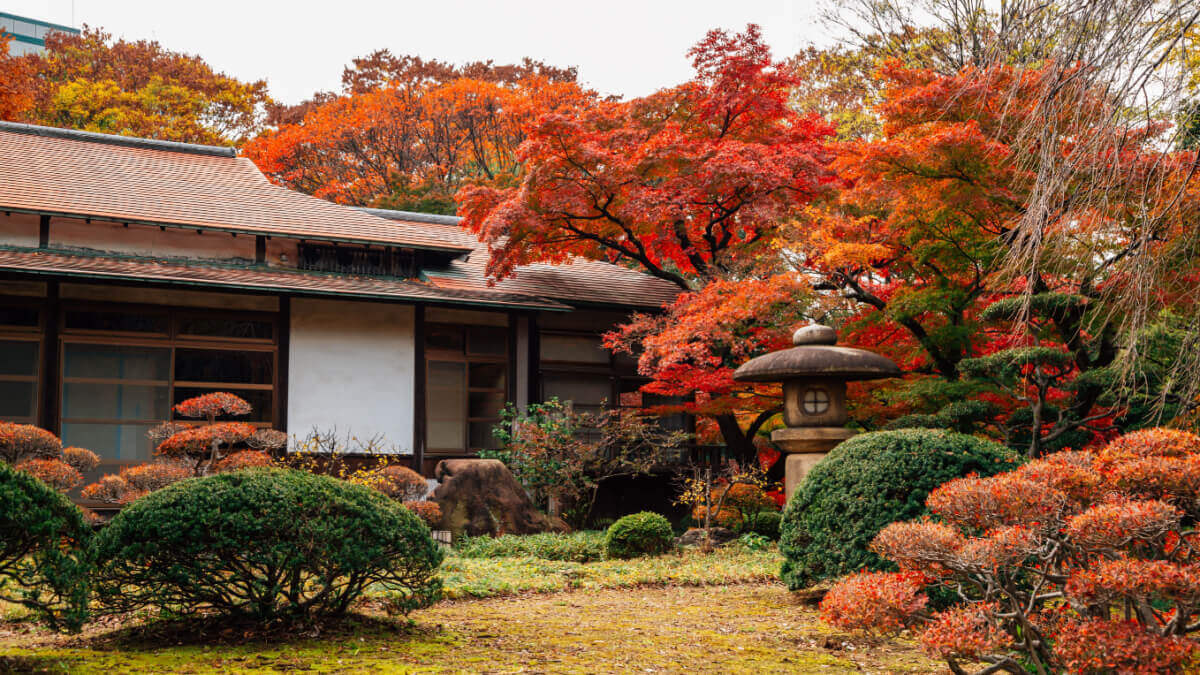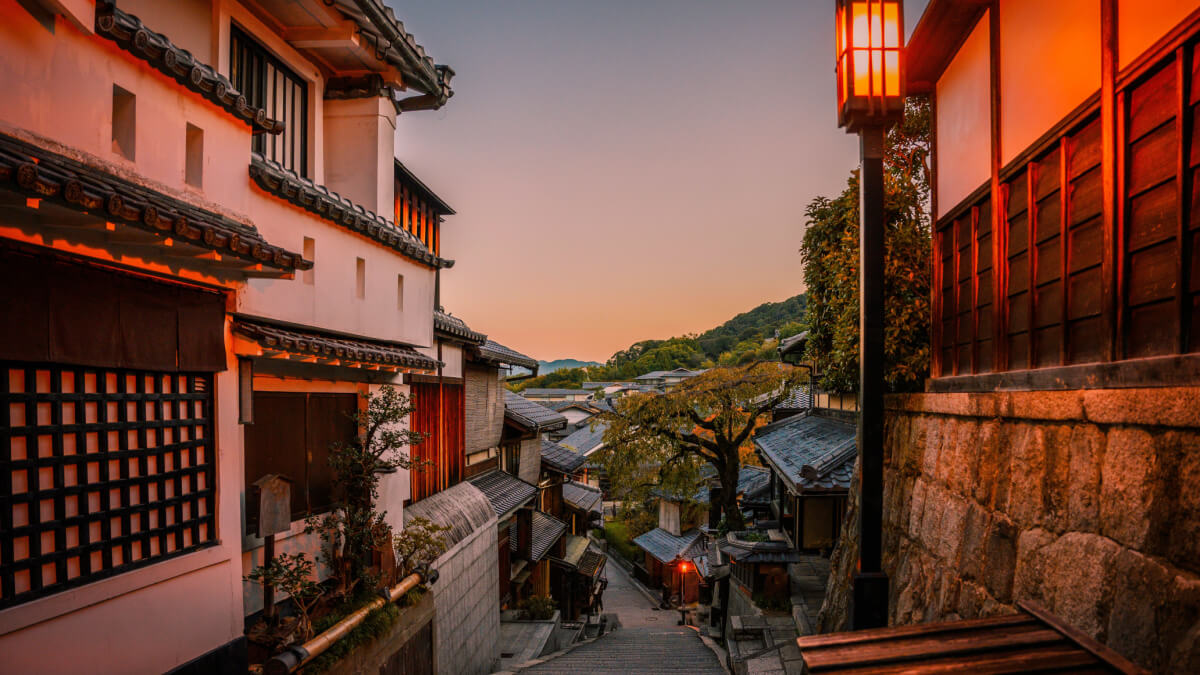Moving to Japan from the UK: a complete how to guide
Thinking of starting a new life chapter in the Land of the Rising Sun? Japan’s unique mix of traditional and innovative might be just the right thing for your...

If you’re planning a move to Japan from the UK, finding somewhere to live will be at the top of your to-do list. You might be planning to rent at first, before buying your very own home in Japan.
To help you navigate the process, we’ve put together a helpful guide to buying property in Japan as a Brit. This is a must-read for anyone looking to buy a permanent home, holiday home or an investment property in Japan.
We’ll run through what to expect from the buying process, plus fees, taxes, legal requirements and the latest info on Japanese property prices.
What’s more, we’ll also show you a cost-saving way to transfer funds between the UK and Japan using the money services provider Wise. You can send secure international payments with Wise, for low fees and mid-market exchange rates. It could save you a bundle compared to using a bank.
Please see the Terms of Use for your region or visit Wise fees & pricing for the most up-to-date information on pricing and fees.
Property prices in Japan have been rising over the last few years, with a jump of 7.5% recorded in 2022.¹
Prices vary considerably depending on location, with increases of up to 10.5% recorded in cities like Osaka. Demand for properties is relatively weak, with sales falling in major cities like Tokyo and Osaka.¹
Interest rates are also rising in Japan.¹
All of this means that it could be an expensive time to buy property in Japan, although there’s always the chance to snap up a bargain in areas where demand is weak.
Yes, foreign nationals can buy property in Japan. You can even buy property if you’re not a resident, although you may find it more challenging to meet some of the documentation and other requirements.
Processes like applying for a mortgage and opening a Japanese bank account can also be more complicated for foreigners and non-residents.
There are some types of property that you can’t purchase as a non-Japanese national, however. This includes:
Unlike some countries, Japan doesn’t have a ‘golden’ or investment visa which allows you to get a residency permit by investing in property.
If you’re interested in routes to residency, there’s full information on all Japan visa types here on the Ministry of Foreign Affairs of Japan website.
| 📚 Read more: Moving to Japan from the UK: a complete how to guide |
|---|
Nearly ready to start house hunting? Before you do, it can be useful to know a little about how the process of buying property works in Japan. Here’s an overview of the steps involved:³
1. Search for a property
It could be a good idea to use a local real estate agent to help you with your search. We’ll give you some tips on estate agents and online property websites later in this guide.
2. Get your finances in order
Before viewing properties, aim to get your finance arrangements in place. You may be able to get pre-approval for a mortgage in writing, which can be a strong bargaining chip when making an offer.
3. Express your intent to purchase in writing
Found your dream property? You’ll need to submit a Letter of Intent to the seller. For new build properties, there may be an application form to complete. Submitting either of these shows that you’re serious in your intention to buy.
4. Negotiate the price and sale details
At this stage, an experienced property agent can be invaluable. Your agent will negotiate with the seller on the purchase price, timings of the sale, possible payment methods and much more. Legal documents will be drafted and due diligence checks carried out.
5. Finalise your mortgage
While the negotiations and legal work are ongoing, you’ll need to officially apply for your mortgage (if applicable).
6. Pay the deposit
A deposit of around 10% (although it can be less) is payable to the seller in cash at this stage. Your agent will also provide you with a package of documents which includes the following:
7. Completion
A date is arranged for the final settlement of the balance, which usually takes place at your bank of choice. It’s handled by an official known as a ‘judicial scrivener’. You’ll pay the remaining balance, the title will be transferred to you and you’ll get the keys to your new home.
You may find it difficult to get a mortgage from a Japanese bank if you’re not living in the country or have permanent residency status. However, this doesn’t mean it’s impossible.
Some larger banks such as SMBC Prestia have been known to offer mortgages to non-resident foreigners. For the best chance of success, look for a bank which specialises in providing services to foreigners, and which has English-speaking staff. ⁴
As well as the purchase price, you also need to factor in the relevant fees and taxes for buying property in Japan. There are quite a few you need to know about.
The first is stamp tax, which is based on the agreed purchase price of the property:⁵
| Property price | Stamp tax due |
|---|---|
| 5-10 million yen | 5,000 yen |
| 10-50 million yen | 10,000 yen |
| 50-100 million yen | 30,000 yen |
| 100-500 million yen | 60,000 yen |
| 500 million - 1 billion yen | 160,000 yen |
| 1 billion - 5 billion yen | 320,000 yen |
| 5 billion yen+ | 480,000 yen. |
You’ll also pay:⁵
| 📚 Read more: Pros and cons of living in Japan? You'll wanna read this. |
|---|
Generally speaking, property in Japan is a touch cheaper than in the UK, but there’s not a lot in it. On average, it’s around 6.8% cheaper to buy an apartment in a city centre in Japan, and around 28% cheaper to buy one outside a major city.⁶
The average property price in Japan (based on buying a flat) is around 45,661,608 JPY (roughly £251,000).⁷
Where you buy will also affect the property price, based on what’s happening in the local market. Here’s a guide to what you can expect to pay per square metre in a couple of Japan’s major cities:⁸
| City | Average apartment price per sq.m - city centre | Average apartment price per sq.m - outside city |
|---|---|---|
| Tokyo | 1,009,029 JPY | 594,521 JPY |
| Osaka | 895,727 JPY | 512,288 JPY |
Remember though that property prices will also vary depending on the type of property.
When it comes to sending over money for your deposit and the final balance, Wise could be the ideal solution. It’s safe, secure and fast, even for sending large transfers.
What’s more, you’ll get mid-market exchange rates and low fees when you send money with Wise. This could save you a small fortune compared to using your bank.
Learn more about sending money with Wise 💰
Please see the Terms of Use for your region or visit Wise fees & pricing for the most up-to-date information on pricing and fees.
According to figures from 2022, the cheapest places to buy property in Japan are the Tohoku regions of Akita and Aomori. You may also be able to snap up a great value property in the prefecture of Tottori in western Honshu.
If you’re buying on a budget, you may be best steering clear of major cities and urban areas, where prices are unsurprisingly much higher.

There are a few ways you can find property to buy in Japan. You can use a real estate agency, look online on property websites - or use a combination of both.
It’s strongly recommended to use an estate agent to find and buy your property in Japan, especially if you’re not a fluent Japanese speaker.
An agent will be knowledgeable about the local property market, and can help you with a lot of the legal and administrative processes involved in purchasing the property. They can also negotiate on the price.
If you’re looking for an agent, aim for one which offers multilingual support. Some of the most foreigner-friendly large agencies include:¹⁰
Even if you’re using an agency, you can at least start your search for property in Japan online. This can be a good way to figure out what you want, and what’s available for your budget.
Here are some of the most popular property websites for Japanese real estate:¹¹
There are a few things you should be aware of when buying a home in Japan:
The right property for you will all depend on where you want to live, the type of home and of course, the price.
If you’re not already living there, it’s worth making a trip to check out the local area and view properties. Pay attention to local transport links and amenities, and try to get a feel for the area.
It’s crucial to do as much research as possible before committing to purchase a property, making sure it’s in good condition and that there are no major issues.
A structural survey could give you valuable information on any potential problems with the property.
If you have any concerns at all, it could be an expense well worth paying.
| 📚 Read more: Study in Japan from the UK: visas, universities, and costs |
|---|
As you look forward to getting the keys to your new home, you’ll have a final few tasks to check off your list.
You’ll need to get suitable insurance before you take possession of the property, depending what level of cover you need.
Got your completion date? Once this is confirmed, you can start making arrangements to move in. It makes sense to get some essentials set up in advance, such as utilities like heating, power and water. This should be relatively straightforward, but you may need assistance from an interpreter if you don’t speak much Japanese.
Bought a property with an old heating system or poor insulation? One of your first priorities might be to carry out energy efficiency renovations. This can make your home more comfortable (especially in winter) and lower your heating bills.
And that’s it - your complete guide to buying property in Japan as a Brit. We’ve covered it all, from the buying process to fees, taxes and property prices.
After reading this, you should have a better grip on how it all works, and be ready to start house hunting.
And, if you need an easy, low-cost way to handle your finances in both the UK and Japan, consider checking out the Wise account.
Please see the Terms of Use for your region or visit Wise fees & pricing for the most up-to-date information on pricing and fees.
Sources used for this article:
Sources checked on 16-Oct-2023.
*Please see terms of use and product availability for your region or visit Wise fees and pricing for the most up to date pricing and fee information.
This publication is provided for general information purposes and does not constitute legal, tax or other professional advice from Wise Payments Limited or its subsidiaries and its affiliates, and it is not intended as a substitute for obtaining advice from a financial advisor or any other professional.
We make no representations, warranties or guarantees, whether expressed or implied, that the content in the publication is accurate, complete or up to date.

Thinking of starting a new life chapter in the Land of the Rising Sun? Japan’s unique mix of traditional and innovative might be just the right thing for your...

Your essential guide to importing a car from Japan to the UK, covering the costs, documents and procedures to follow.

Japan is a country with a rich history and growing economy. In certain industries, like the tech sector, booms are starting to happen. Japan is quickly...

Whether you’re bridging family traditions or a simply looking for a unique destination, a Japanese wedding experience is like no other in the world. Japanese...

Have you ever thought about moving to a new country? There are lots of reasons to consider a move abroad: work, school, moving with family or following love....

Getting around Japan’s urban metropolises is notoriously easy thanks to one of the world’s best and most efficient public transportation systems. Outside of...